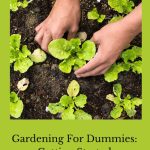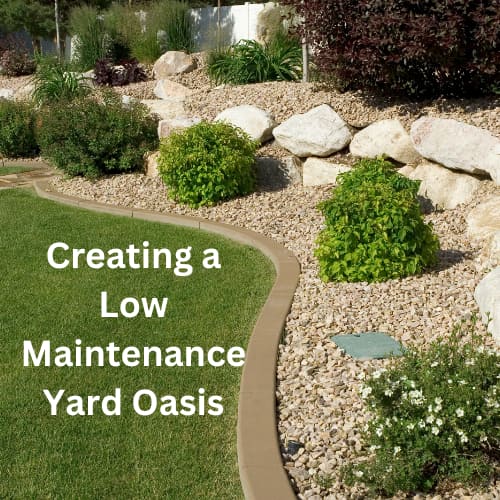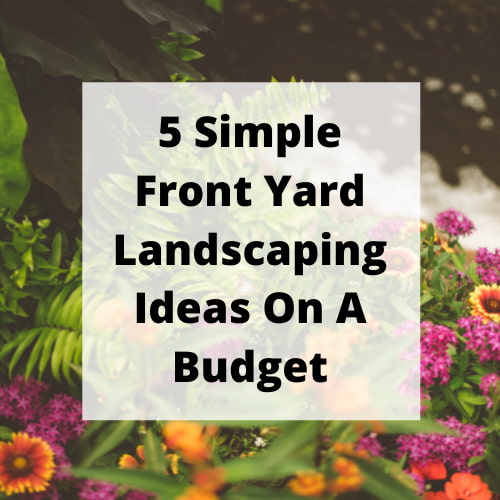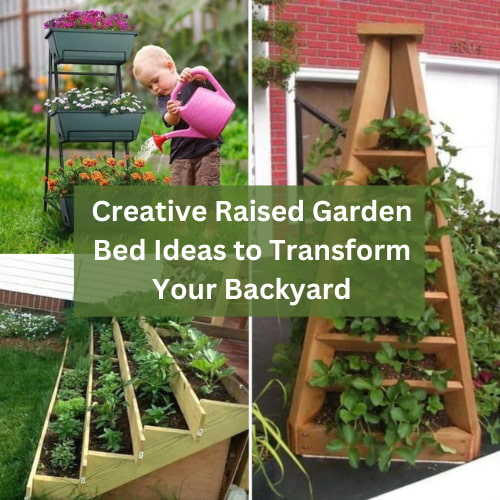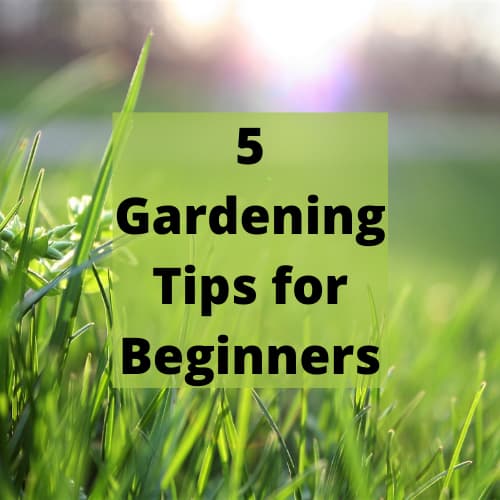Gardening For Dummies: Getting Started
Are you looking for gardening for dummies? As beneficial as gardening is, there’s a lot that we need to do to make sure that it reflects our home and becomes part of who we are. There are a lot of challenges and frustrations at play, so if you want to make your garden a great place to relax but you are dreading the level of work that might be ahead of you, here are a few things to make the process less stressful.
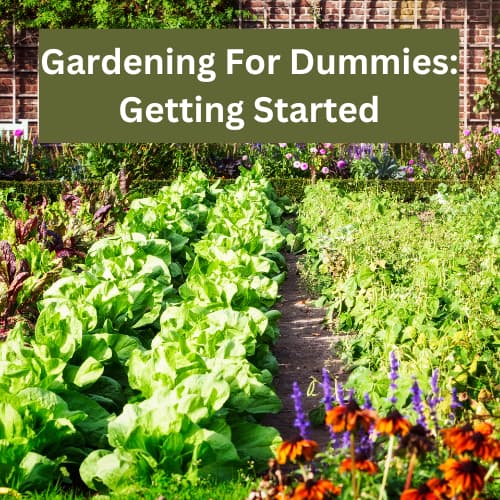
Gardening for Dummies:
Plan Ahead
One of the biggest reasons people feel so overwhelmed with their garden work is that they don’t put a proper plan in place. The problem with the garden is that there’s an almost endless list of things to do, but there’s also unlimited potential, and this means that in order to realize some form of vision we’ve got in our heads, we just keep hacking away for months, if not years.
Additionally, one of the biggest issues is keeping the garden in some form of repair, especially if there’s adverse weather or other pests that can cause havoc to your garden. This is where numerous gardening and groundskeeping services can instantly make a difference but it’s worth nothing if you don’t plan properly.
It’s critical that we put a plan in place, not just for the aesthetics of the garden but also our budget. You should consider the type of plants you want to grow, where they’re going, and how much time, resources, and money you need, which will help you manage the project more efficiently and ensure that you can actually look after the space.
Related garden planning posts:
Have the Right Tools
A lot of people believe that it’s about good old-fashioned elbow grease, but if you find the process of tending to any form of garden overwhelming, having good-quality tools makes all the difference. The great thing is that these days, there are a lot of really fancy tools on the market, from a robot lawn mower to aerator sandals that you can put on your feet, which penetrate the ground while walking around, but there are also things that you can do to protect yourself. For example, a gardener support belt can protect your lower back if you find all that bending over is too much at the end of the day.
Shop any of these stores and I receive a small commission at no cost to you.
 Fiskars Bypass Pruning Shea...Shop on Amazon
Fiskars Bypass Pruning Shea...Shop on Amazon Gardening Tool Set, CHRYZTA...Shop on Amazon
Gardening Tool Set, CHRYZTA...Shop on Amazon Fiskars 3-in-1 Garden Tool ...Shop on Amazon
Fiskars 3-in-1 Garden Tool ...Shop on Amazon Fiskars 28" Loppers for Tre...Shop on Amazon
Fiskars 28" Loppers for Tre...Shop on Amazon Fiskars Ergo Weeder Tool fo...Shop on Amazon
Fiskars Ergo Weeder Tool fo...Shop on Amazon DonSail Hoe Garden Tool -Sc...Shop on Amazon
DonSail Hoe Garden Tool -Sc...Shop on Amazon GREBSTK Crack Weeder Crevic...Shop on Amazon
GREBSTK Crack Weeder Crevic...Shop on Amazon
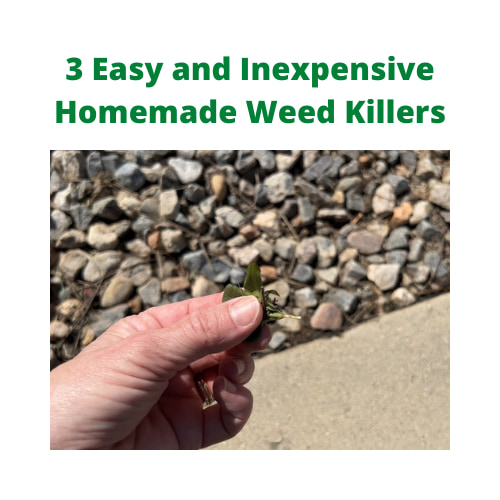
If You Do Nothing Else, Make Sure You Mulch and Weed Regularly
Looking after your garden shouldn’t be stressful, and life can easily get in the way. So if there’s a lot at play, we need to make sure that we are, at the very least, mulching and weeding regularly. This is the enjoyable work of building soil and can prevent weeds, and conserve your water supply.
Even if you hate weeding, adding mulch can protect the plants, and adding mulch isn’t something you need to do all of the time. In fact, the best time to add mulch is between mid to late spring because the weeds have not sprouted yet. It’s one of the best things you can do to make gardening a lot easier. And while you may notice weeds taking over your garden, the best thing to do here is to attack them with homemade weed killers when they are at their smallest. But if you don’t know what types of weeds there are, there are plenty of resources available online, including here.
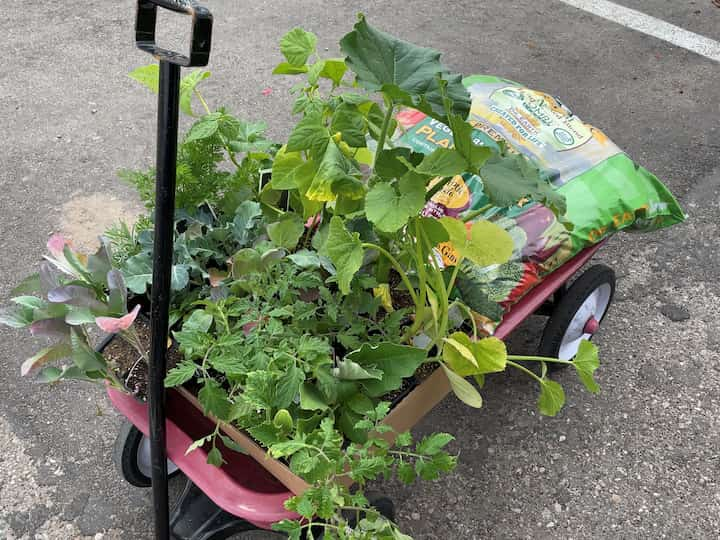
Pick the Right Plants
Gardening can take longer than necessary because people are not well-versed in the right type of plants that thrive in their climate. Some plants are easier to grow than others, even if you have a green thumb so doing some research and picking the right plants, such as native plants, will make all of the difference.
Additionally, grouping plants makes all the difference because when you start to group plants according to their needs, you’re making life easier for yourself, and you can make the job of gardening far more efficient and therefore less stressful.
Sometimes we want to grow exotic plants, but it can be more effort than it’s worth if it’s not built to thrive in your environment. On the other hand, there are amazing perennials with lots of different colors and don’t have as many needs as their high-maintenance counterparts. It’s the best way to add style to your garden with minimal effort.
Related posts for picking the right plants include:
- Amazing and Awesome Vegetable Garden Ideas
- 5 Amazing Gardening Tips for Beginners
- Easy DIY Garden Plant Care
- Easy DIY Flower Gardening for Beginners with Video
- 5 Amazing Garden Trends
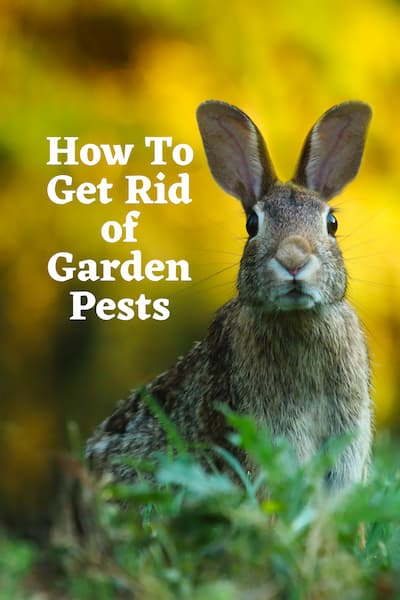
Keep Pests out of Your Garden
Keeping pests out of your garden is important for several reasons:
- Protecting plants: Pests can cause significant damage to your garden plants. They may eat leaves, flowers, fruits, or even the entire plant. This can lead to stunted growth, reduced yield, and in some cases, the death of the plant. By keeping pests out, you can ensure the health and vitality of your plants.
- Preserving harvest: If you love good food and are growing fruits, vegetables, or herbs in your garden, you want to enjoy a bountiful harvest. Pests, such as insects, rodents, or birds, can quickly decimate your crops and ruin your harvest. By preventing pests from accessing your garden, you increase the chances of a successful and abundant harvest.
- Disease prevention: Some pests can carry and transmit plant diseases. When they infest your garden, they can introduce pathogens that harm your plants. For example, aphids can spread viral diseases among plants. By keeping pests out, you reduce the risk of disease outbreaks and the need for potentially harmful pesticides.
- Environmental considerations: Many chemical pesticides used to control pests in gardens can be harmful to the environment, beneficial insects, and wildlife. By focusing on prevention and natural pest control methods, you can minimize the need for such chemicals and promote a more sustainable and eco-friendly approach to gardening.
- Aesthetics and enjoyment: A well-maintained garden is a beautiful and enjoyable space. Pests can damage the appearance of your plants, flowers, and landscaping features. By keeping pests out, you can preserve the aesthetic appeal of your garden and create a pleasant environment for yourself and others to enjoy.
- Cost savings: Dealing with pest infestations can be costly. It often requires purchasing pesticides, traps, or hiring professional pest control services. By proactively preventing pests from entering your garden, you can avoid these expenses and potential losses associated with pest damage.
Overall, keeping pests out of your garden helps protect your plants, preserve your harvest, prevent disease, promote environmental sustainability, enhance the aesthetics, and save you money in the long run.
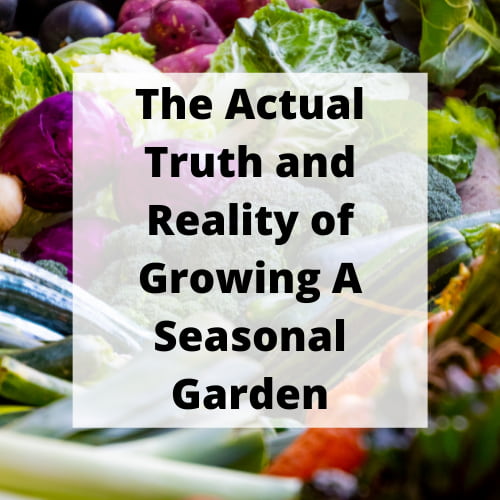
Gardening for Dummies Related Posts
- The Actual Truth and Reality of Growing My Seasonal Garden
- How To Get Rid of Vegetable Garden Pests with These 12 Easy Tips
- Easy DIY Garden Plant Care
- Easy DIY Flower Gardening for Beginners with Video
What should I garden for beginners?
Here’s a basic gardening checklist for beginners:
- Determine your gardening goals: Decide what you want to achieve with your garden. Do you want to grow flowers, vegetables, herbs, or a combination?
- Choose an appropriate location: Find a spot in your yard or balcony that receives adequate sunlight and has good soil drainage.
- Prepare the soil: Clear the area of weeds, rocks, and debris. Loosen the soil with a garden fork or tiller, and amend it with compost or organic matter to improve fertility and drainage.
- Decide on container or ground gardening: Determine whether you’ll be gardening in containers or in a small plot of soil. If using containers, select pots with drainage holes and suitable sizes for your plants.
- Select your plants: Choose plants that are suitable for your gardening zone and the amount of shade or full sun that you have. Consider factors like plant height, spread, and maintenance requirements.
- Purchase gardening tools: Acquire basic tools such as a trowel, hand pruners, a garden hose or watering can, a rake, and a shovel. Consider purchasing gardening gloves and knee pads for added comfort and protection.
- Plant your garden: Follow the planting instructions provided with your chosen plants. Dig appropriate holes, space plants properly, and gently firm the soil around them.
- Water regularly: Provide adequate water to your plants based on their specific needs. Check soil moisture regularly and adjust watering frequency accordingly. Be mindful not to overwater or underwater your plants.
- Mulch your garden: Apply a layer of mulch around your plants to help retain moisture, suppress weeds, and regulate soil temperature. Use organic mulch like wood chips or straw.
- Fertilize as needed: Monitor the health and growth of your plants. If necessary, feed them with a suitable fertilizer according to the specific requirements of each plant type.
- Weed and maintain: Regularly inspect your garden for weeds and remove them promptly. Prune plants as needed to promote healthy growth and remove dead or damaged parts.
- Monitor pests and diseases: Keep an eye out for signs of pests or diseases. Identify the problem and take appropriate measures such as organic pest control methods or seeking advice from a local garden center.
- Harvest and enjoy: Once your plants start producing, harvest the fruits, vegetables, or flowers at their peak of ripeness. Enjoy the fruits of your labor!
- Learn and adapt: Gardening is a continuous learning process and just takes a bit of patience. Take note of what works well and what doesn’t, and make adjustments in subsequent seasons to improve your gardening skills.
Remember, this checklist provides a general overview, and specific gardening tasks may vary depending on the plants you choose and your local climate. Happy gardening!
What is the easiest vegetable to grow for beginners?
- Lettuce
- Radishes
- Green beans
- Tomatoes
- Zucchini
- Cucumbers
- Carrots
- Spinach
- Kale
- Swiss chard
- Peppers (bell peppers or chili peppers)
- Peas
- Green onions
- Beets
- Bush or pole beans
- Herbs (such as basil, parsley, mint, or cilantro)
- Summer squash
- Cabbage
- Broccoli
- Cauliflower
- Eggplant
- Pumpkins
- Watermelons
- Onions (from sets or seedlings)
- Garlic
- Sweet potatoes
- Strawberries
- Arugula
- Mustard greens
- Corn
- Okra
- Melons

Gardening for Dummies: Enjoy the Process
Yes, there are many hacks available to upgrade your garden, but gardening should be something that relieves stress rather than adds to it. Gardening is as much about the journey as it is about the results, and we should all do our best to appreciate what we can create and enjoy the satisfaction of growing something with our own two hands, as well as enjoying the process of spending time outdoors. When it comes to making gardening easier, you’ve got to learn how to get to the root of it all.


